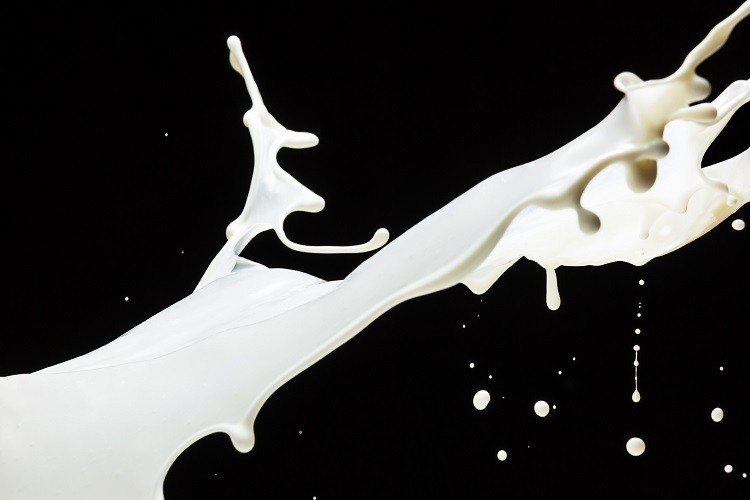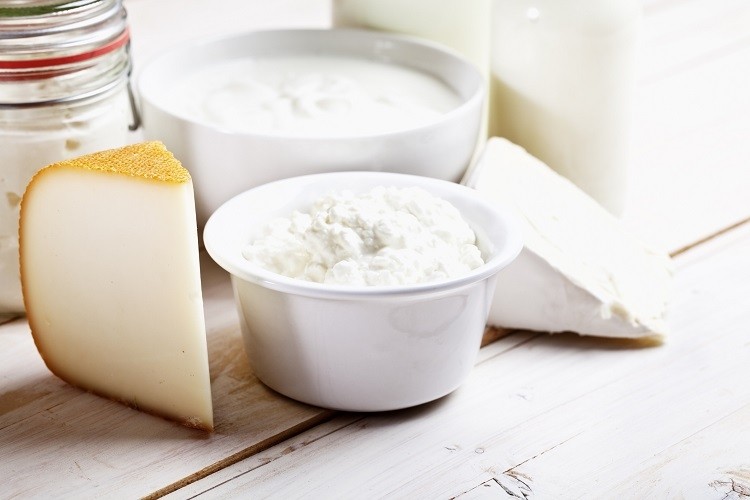Casein without the cow? Meet the Estonian start-up producing milk proteins from yeast

Prior to founding ProProtein, food technologist Kaisa Orgusaar worked in dairy alternative R&D.
While successful in creating more sustainable dairy alternatives from plant proteins, Orgusaar became quickly frustrated by the category’s textural and nutritional failings.
“I realised that plant proteins had such different properties [to dairy proteins] that they simply don’t create the same texture,” she told this publication.
“I also realised that the current alternatives have such poor nutrition. They are also expensive.”
When the food technologist discovered dairy proteins could be fermented from microorganisms, she knew they held great potential in alt dairy. “Because they’re still not available in Europe, I decided to take the matter into my own hands and start producing them.”
Making casein from microorganisms
Estonia-based ProProtein is producing cow casein from yeast. Casein is the principle milk protein, and the start-up hopes to produce all four of its subtypes: αs1-casein, αs2-casein, β-casein, and κ-casein.
“Yeast is like any other microorganism. It just wants to eat and live in a safe environment,” explained Orgusaar. The start-up is currently working with baker’s yeast, but plans to investigate alternative strains in the future.
ProProtein first inserts the cow’s casein protein-producing gene into the yeast genome. “We provide them with a carbon source (sugars) and nitrogen – which is needed for the protein production. They grow inside liquid growth media, where they produce the protein,” we were told.
The protein can then be allocated via centrifugation and filtration, before the casein fractions are spray dried for commercialisation. The end goal is to supply these animal-free caseins to food makers ‘looking to improve their products’ quality’.
“It can be applied to all kinds of dairy products, but the best use is in products that require a curd, such as cheese or yoghurt,” Orgusaar continued.
Sustainability and nutrition
ProProtein’s technology requires up to 98% less water and 65% less energy than conventional dairy protein. It produces 84% less CO₂ and 92% less pollutants.
Further, the technology is scalable and allows for dairy proteins to be produced anywhere, including in urbanised areas. ProProtein is still working at lab-scale, but explained that once the process is developed, it can be easily transferred into bioreactors.

From a nutrition perspective, the dairy proteins are completely free from cholesterol, antibiotics, and hormones, and can be a suitable alternative to consumers with lactose intolerance.
While not suitable for consumers allergic to dairy proteins, the start-up plans to investigate how its casein can be made less allergenic in the future.
Orgusaar suggested the dairy proteins could also be suitable to those concerned about animal welfare. If a consumer avoids conventional dairy due for such reasons, or due to environmental concerns, then ProProtein’s offering is ‘definitely is a very good solution’, she told FoodNavigator. “It finally allows them to have a nutritional and tasty product.”
Regulation and consumer acceptance
In Europe, alt dairy produced via precision fermentation is considered a novel food, meaning it is subject to the European Food Safety Authority’s (EFSA) Novel Foods regulation.
No milk proteins produced this way have received regulatory approval in Europe to date. In the US, however, products containing milk-identical proteins via precision fermentation are already on the market. Perfect Day – which makes its whey protein in a similar process – received FDA approval in 2020.
While ProProtein would like to first enter the market in Europe, Orgusaar acknowledged the regulatory environment here is ‘much more complicated’.
Further, she was not convinced Eastern Europe would be the ideal entry market, as its population does not avoid animal products to the same extent as some western Member States. “Eastern Europeans are not so much into veganism yet,” she explained, “because they’re less wealthy, so those decisions are difficult for them to make.”

Rather, ProProtein has its eyes on North America, and in particular, Canada. A market analysis undertaken by the start-up backs up this approach.
Having surveyed 190 shoppers to examine their preferences and needs in the alternative dairy sector – with a majority (55%) living in the US – 80% said they were willing to try products containing precision fermentation ingredients. A higher susceptibility was observed in younger age groups.
As ProProtein inserts the cow’s casein protein-producing gene into the yeast genome to kickstart the precision fermentation process, the start-up also surveyed consumers about their attitudes to GMOs.
Findings revealed that 74% of North American citizens consider GMOs to be safe and already eat them or are willing to eat them if they are proven to be safe. For Europeans, on the other hand, the acceptability was clearly lower, accounting for 58%.
“I think it’s very important to market it in a way that [highlights] its benefits, and specifies why is it safe to use,” added ProProtein’s communications lead Eveline Russ.

ProProtein was recently accepted into the eighth cohort of the ProVeg Incubator, which focuses on emerging food technologies and ingredients for the alternative protein space.
“We see it as a great opportunity to connect with the food industry community, scientists, and investors,” Orgusaar told us. “They’re really supporting us in that way.”






























